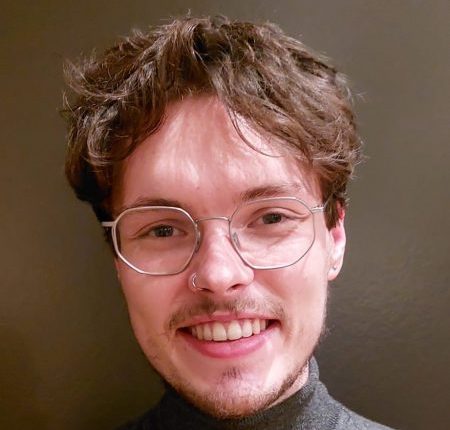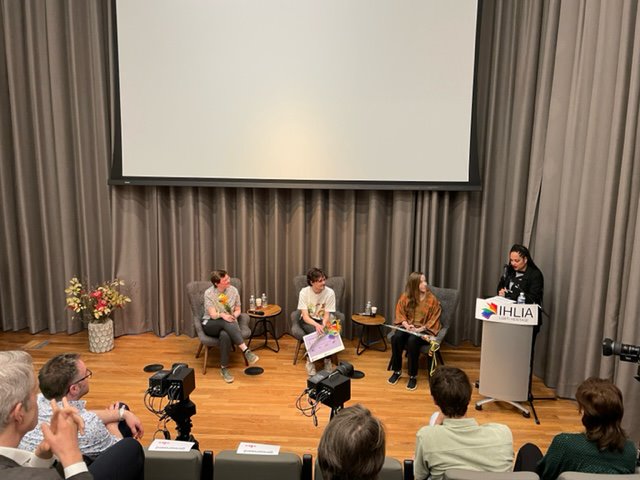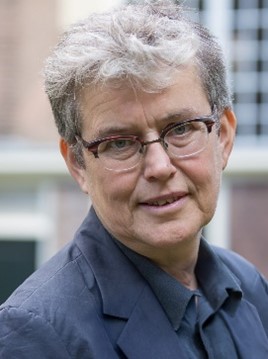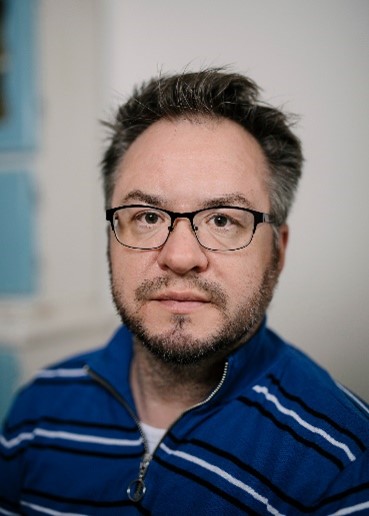IHLIA Thesis Prize
For English scroll down
Voor Nederlands klik hier
Back to the homepage of the IHLIA Thesis Prize

IHLIA received a variety of theses on all kinds of subjects, from Japanese prints about intersex, the protests around Pink Saturday, De Rooie Flikkers in the 70s and 80s and pink fatherhood. The jury has read the beautiful, impressive, sharp and sometimes critical works with enormous interest and pleasure.
After extensive consultation, the jury consisting of Afiah Vijlbrief (chairman), Geertje Mak, Alex Bakker and Jonas Roelens selected three nominees: Asa Splinter, Noah Littel and Robbe Himpe.
VIDEO NOMINEES
This is a video of the nominees in which they tell something about their thesis.
READ ALL THESES
The winner was announced during a festive gathering on Tuesday 22 March. Robbe Himpe received a check worth €750 from Afiah Vijlbrief. In addition, Himpe is allowed to publish an article about the research in the journal Historica.
Text continues under images


Below you will find a registration of the award ceremony (in Dutch), which was festively enriched with a meeting with the theme The sense and nonsense of labels. In the lecture ‘Queering Eugenia Falleni’, post-doc researcher Saartje Tack explored the implications of (re)interpreting people from the past based on contemporary interpretations of identity. And there was a performance by rapper, songwriter and producer Babs on the Beat.
Text continues under the YouTube video
About the winning thesis ‘Out of the closet and in diapers. A history of homosexual fatherhood in Flanders.’
It has been 15 years since LGB adoption was legalized in Belgium. This came after a specific lobbying campaign by the LGBT movement, which had made adoption opening the spearhead of its political agenda.
However, parenting and adoption did not always enjoy such a central position within the movement. This thesis examines how gay fatherhood was represented in Flemish LGB people, from the 1980s until the change of the law in 2006. Using various magazines, it is examined how gay fatherhood was presented in the movement, how this representation evolved over the years and how this led to the 2006 Adoption Act.
Explicit attention is paid to the contrast with lesbian motherhood, in order to expose gender assumptions about parenthood.
This thesis also examines how the representation in the magazines contrasted with ideas in the wider society, more specifically among the various political parties in Flanders.
Finally, it also examines the personal experiences of homosexual fathers and intended fathers, who before 2006 had no legal possibility of joint parenthood.
The thesis concludes that the notion of “homosexual fatherhood” has undergone a shift in meaning. While the term was first interpreted as the result of past heterosexual relationships, it was gradually redefined as “conscious” homosexual parenting.
In addition, it is concluded that the growing interest in parenting within the LGB movement was linked to an ideological transformation, which exchanged radical ideas for conformist ones.
Jury member Afiah Vijlbrief about the thesis
“The thesis has a classic, nuanced narrative character, and offers a new interesting angle through the issue of gay paternity. The rich source analysis is exemplary for this kind of historiography. Conclusions are clearly in line with this. The jury appreciates how this research contributes to insight into shifting self-images and identities in LGBTI history.”
Jury 2022

Afiah Vijlbrief (chair) is a researcher at Rutgers (international centre of expertise on Sexual and Reproductive Health and Rights (SRHR)) and focuses on intersectionality and identity issues, including queer people of color. From previous positions at Radar, IDEM Rotterdam, Art1., Movisie and KIS (Knowledge Platform Integration and Society) she has broad specific expertise on sexual and gender diversity. Among other things, Afiah conducts research into trans non-binary people, among other things: Transcending the gender binary: Gender non-binary young adults in Amsterdam.
Geertje Mak is professor of the Political History of Gender at the University of Amsterdam and researcher at the KNAW’s NL-Lab. Since 1988 she has been publishing on cross-border sexes in relation to the idea of gender as identity. Important publications include Male Women. On gender boundaries in the nineteenth century (1997) and Doubting Sex. Inscriptions, Bodies and Selves in Nineteenth Century Hermaphrodite Case Histories (2012). She recently published’The Sex of the Self and Its Ambiguities, 1899–1964’ in The Palgrave Handbook of the History of Human Sciences. She also focuses on colonial history and race in the history of science.


Alex Bakker works as a freelance historian and writer, specializing in transgender history. In 2018 his overview work Transgender in the Netherlands. An extraordinary history was published. He wrote the book My false past (2014) about his personal background as a transgender man. Bakker recently published, among other things, about the international connections in transgender issues from 1900-1960 and about the medical history of the VU gender team. This year he started a transgender heritage project and curated the accompanying traveling exhibition.
Jonas Roelens is assistant professor in gender history at Radboud University Nijmegen and Ghent University. In 2018 he defended his dissertation on the repression and perception of sodomy in the early modern Southern Netherlands. For this, in 2019 he was awarded both the public and jury prizes of the Flemish PhD Cup and the Erik Duverger Prize. He has published extensively in international academic journals and regularly engages in science communication about his research. He is co-author of the book Silent Desire. A history of homosexuality in Belgium (2017).

Regulations
Read the Thesis and jury regulations

